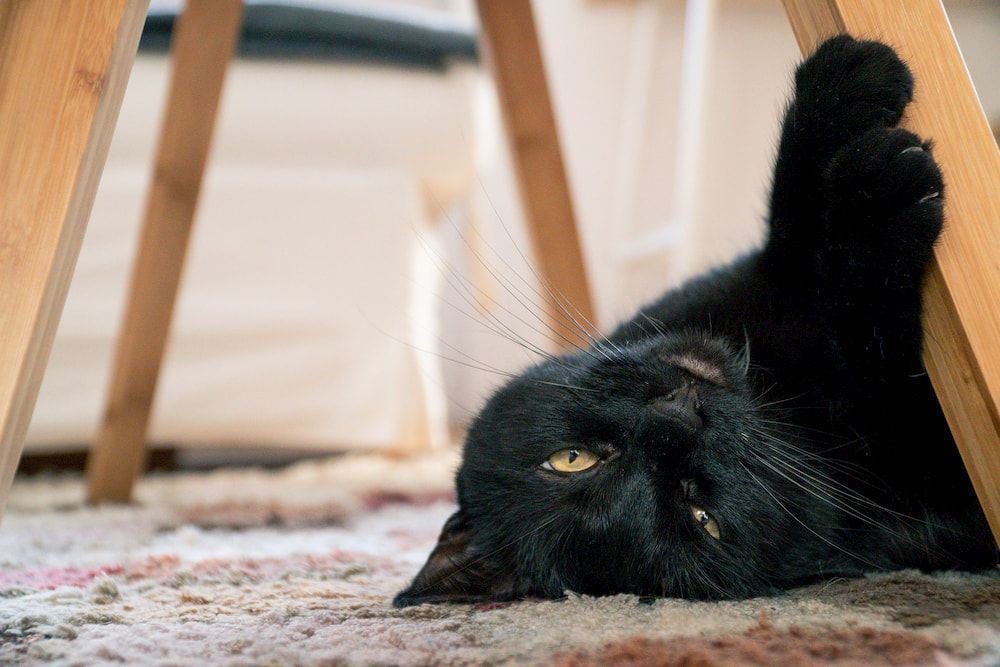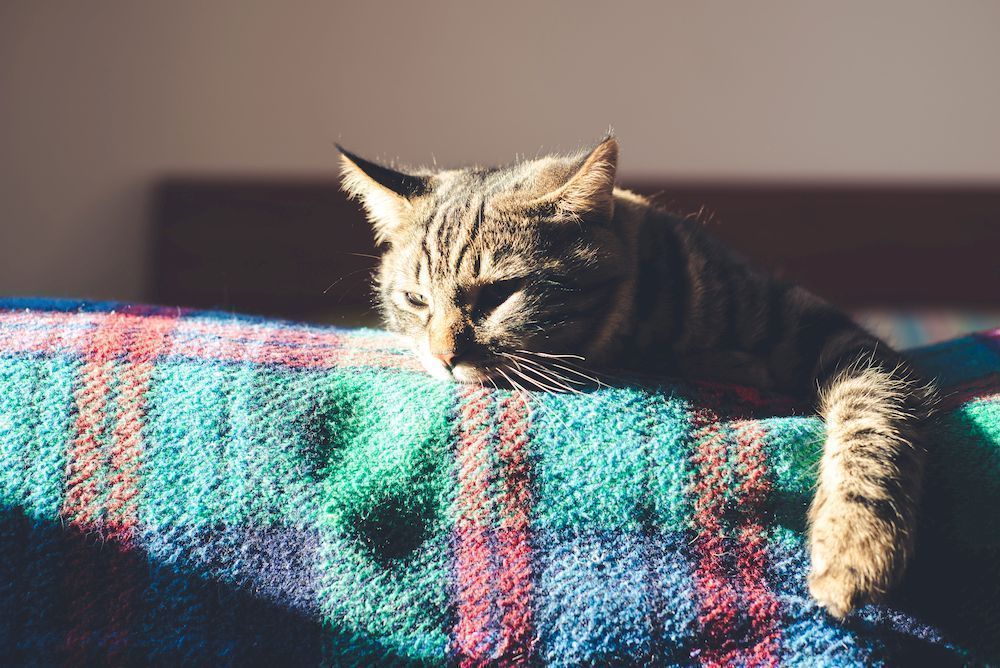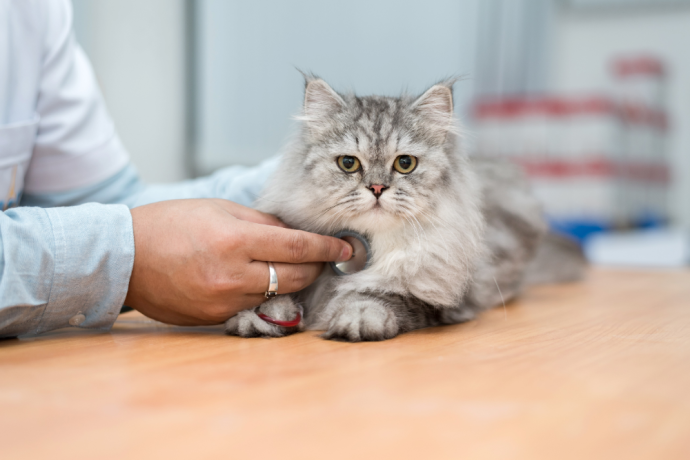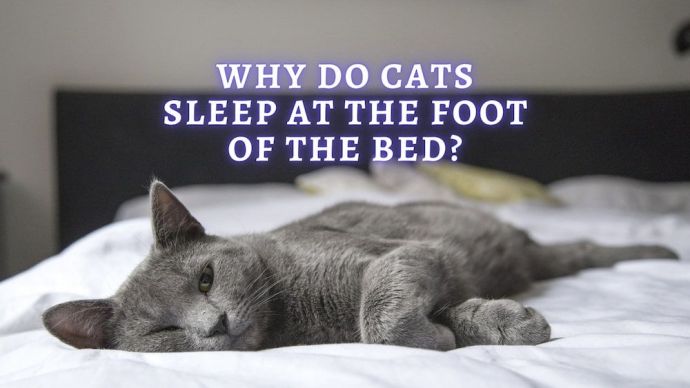Do Cats get Bored: How to tell if your Cat is Bored?
Written by:
Author: Vicki Smirnova
Vicki Smirnova is a professional writer and editor who adores animals and helps readers get along well with their pets. She has been working in digital media for more than 5 years and has great experience writing content about lifestyle, including pets. Vicki specializes in dog health and nutrition, cat feeding, dog training. She is an aquarium lover and is passionate to write about fish care at home. Also, Vicki headed several websites and worked as a news editor.
View all 245 articlesLearn about our editorial process and veterinary review board.
Reviewed by:
Veterinary review
by Dr. Edele Grey
Dr. Edele Grey is a veterinary surgeon with seven years of experience. She professionally works mostly with horses but has treated pets of all sizes including terrapins, llamas, and others. Dr. Grey graduated with honors from the University College Dublin, Ireland, has completed further education in Equine Sports Medicine. In her free time, she enjoys writing about pet ownership and educating people about veterinary care of animals and preventing disease.
View all 10 articlesLearn about our veterinary review board
Viewed: 200
Updated on: 06/25/2021
Cats are territorial creatures, they don’t live in packs like dogs, but they do need social interaction. A cat’s devotion to a person is part of their self-preservation instinct; they do need to meet and interact with both people and other animals.
If you have a very active life outside the home, then your cat may spend long hours at home alone; during these periods, they may feel lonely, bored, and, consequently, may develop depression. You may think that your cat is indifferent to your return, but this is far from the truth. Your cat may have been very bored while awaiting your arrival.
Fortunately, with the advent of new technologies, more exciting and interactive toys have become available for our kitties. These toys can help distract your pet while encouraging their natural predatory behaviors. These toys alone won’t meet all your furbaby’s needs, so you should still make time to play with them whenever possible. Since cats can’t tell you how they feel, paying close attention to their behaviors can help you to understand whether they are bored or feeling lonely and depressed.
READ MORE: Best Cat Trees
Signs of Boredom in Cats
There is an incorrect opinion that cats are ideal pets for extended periods away from home. However, numerous observations show that cats can show signs of anxiety when left alone for extended periods and may become emotionally distant from the person to whom they have become attached.
Marilyn Krieger, a certified cat behavior consultant and founder of the Cat Coach, LS, described some signs for boredom that cat owners should be aware of:
1. Overgrooming
Cats like to look good. They are fastidious animals that want to spend time grooming and take care of themselves. However, if you see that your pet has begun to constantly lick and groom themselves to the point of losing hair or bringing up increasing amounts of hairballs, you should pay attention. If you have any concerns, take your cat to your veterinarian to rule out any underlying diseases that may be the culprits. If your kitty’s in good health, your veterinarian may advise you that this behavior is due to stress, such as suffering from loneliness.
2. Constant meowing
There are many reasons why cat’s meow and some cat’s are naturally quite vocal. If the tone of your kitty’s mew is low and prolonged, it may mean that they are stressed and lonely. If you are continually hearing a cry-like mewing, then your pet needs some more attention.
3. Behavioral changes
Most cats are calm and cheerful when their caring owner is around them. If you notice that your pet is acting a little strange towards you or is becoming unusually aggressive, then these can be signs of stress and loneliness. Your cats can also become aggressive toward other pets, even chasing larger dogs – which may be signs that your cat needs attention. Neediness and over-affection can also be a sign that your pet is craving your attention.
READ MORE: Best Cat Backpack Carrier
4. Hyperactivity
If your cat has begun to run around the apartment, deliberately tip knick-knacks over, started to tear the wallpaper and curtains when you are away for extended periods; then, they may be trying to break their boredom. Bored cats create their own entertainment including, shredding toilet paper, climbing curtains, or engaging in other destructive behaviors; in an adult cat, these can be indicators that they are trying to show how sad they are without you.
5. Marking territory
This is most definitely a sign that something is wrong with your kitty. If your cat begins to mark or “spray” the furniture with urine, they may be stressed, which may be due to loneliness. Difficulty urinating or going to the toilet outside the litter box can also be indicators of stress, but your pet may need immediate veterinary attention if your pet can’t urinate frequently.
6. Overeating or Loss of appetite
Bored cats can act like tired people; some will overeat to have something to do, not because they are hungry. Overeating can lead to obesity, which may cause health problems for your pet. Conversely, if your cat is leaving more food than usual in their bowl, your cat may be depressed from being alone for extended periods. You should still take your pet to the vet first to rule out possible health problems.
7. Depression
We know cats can be lazy creatures, and older pets need to rest more than kittens, however, if you notice that your cat only eats and sleeps all day, and has no interest in any activity, it may mean that they are bored, depressed or isn’t receiving enough mental stimulation.
Positive changes to enrich your pet’s environment, such as interactive toys or increasing play and affection time with your kitty, may help; if this behavior persists, be sure to contact your veterinarian to rule out other causes.
Battling Boredom in Cats
Like humans, each cat has its own character and personality. If you think that your cat is lonely because they spend extended periods alone and noticed the presence of one of the above signs do not despair! There are ways to enrich your kitty’s environment to reduce stress and enhance their happiness:
- Automated and interactive cat toys can be excellent ways to relieve boredom in your kitty when you’re out. If your budget doesn’t allow you to purchase some of these, you can encourage play with some homemade toys from cardboard; make sure they are pet safe, should your cat shred and chew on them.
- Store your pet’s favorite toys somewhere easily accessible to them and spend some time each day, encouraging them to play with the toy.
- Free up some space in the window so that your pet can relax, sunbathe, and watch the world in comfort.
- Hang a bird feeder near the window where your cat watches. This can provide excellent entertainment for your kitty, just make sure to not leave the window open. Otherwise, this may be a final meal for the sparrows outside. To encourage more birds, place the feeder far enough that the birds aren’t startled by your kitty’s interest.
- When nobody is home, you can leave the TV, radio, music or even a pet-friendly podcast turned on to provide some background stimulation for your kitty.
- Consider a second pet, the careful introduction of a new cat may provide your pet with a new playmate to reduce loneliness in your absence.
- When you are home, play with your pet to strengthen your bond and encourage your pet to communicate with you. Lots of play can also help to tire your kitty out, which will help them sleep better and feel less lonely and bored while you’re away.
 Cat Care Veterinary Telemedicine: How telemedicine can help manage chronic conditions in pets?
Cat Care Veterinary Telemedicine: How telemedicine can help manage chronic conditions in pets? - 555
- 0
 Cat Veterinary Tips Cat Fleas and Ticks: How to get rid of Fleas on Cats? (Vet Advice)
Cat Veterinary Tips Cat Fleas and Ticks: How to get rid of Fleas on Cats? (Vet Advice) - 173
- 0
 Cat Care Why Does My Cat Attack My Legs? 10 Reasons Why and What To Do About It (Vet-Approved Advice)
Cat Care Why Does My Cat Attack My Legs? 10 Reasons Why and What To Do About It (Vet-Approved Advice) - 45566
- 21
 Cat Veterinary Tips Cat Stomach Gurgling: Vet Advice on Why is Your Cat Stomach Gurgling?
Cat Veterinary Tips Cat Stomach Gurgling: Vet Advice on Why is Your Cat Stomach Gurgling? - 35340
- 4
 Cat Veterinary Tips My Cat Lost its Voice: Can Cats get Laryngitis? (Vet Advice)
Cat Veterinary Tips My Cat Lost its Voice: Can Cats get Laryngitis? (Vet Advice) - 23247
- 13
























